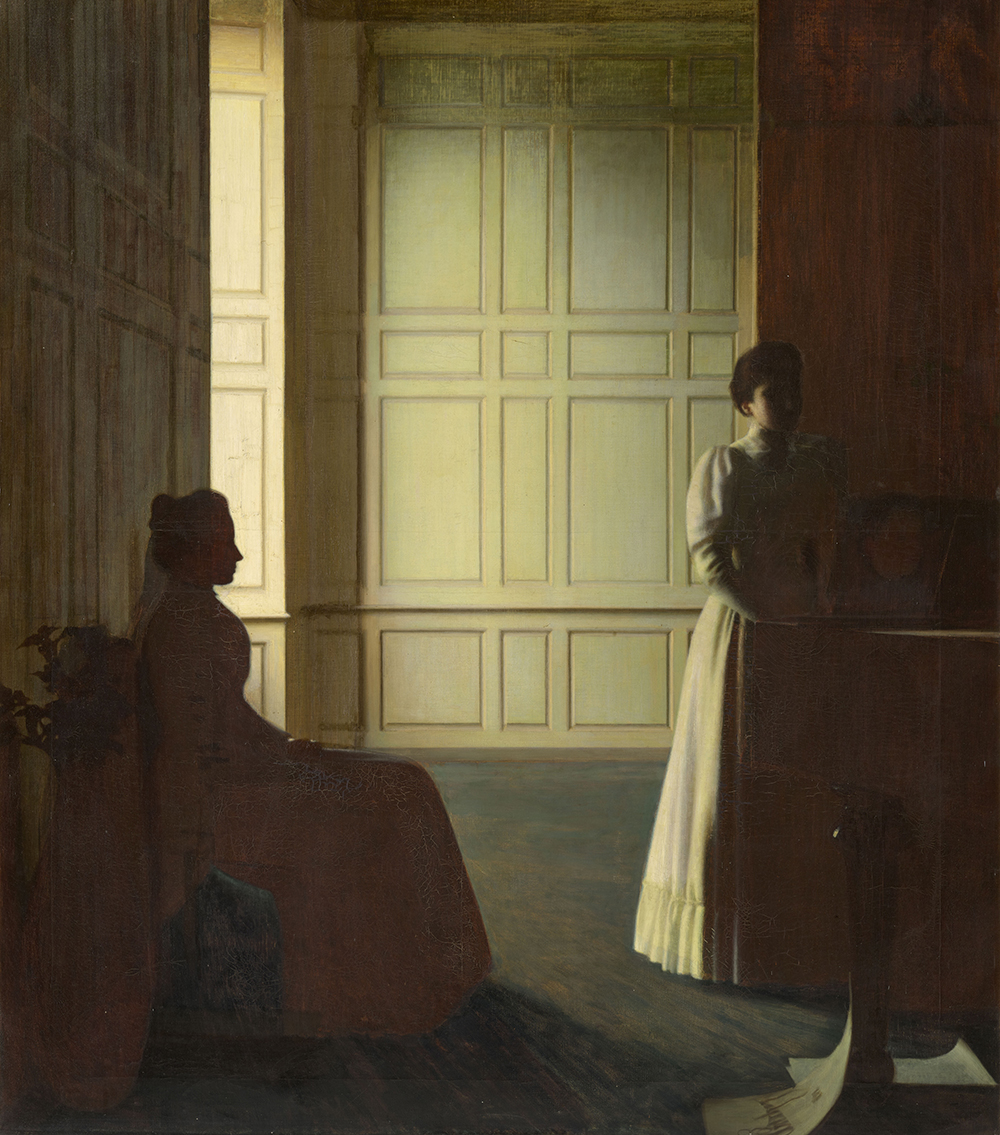[Tartuffe and Elmire; Orgon, her husband, under the table.]
Tartuffe: They told me that you wished to see me here.
Elmire: Yes, I have secrets for your ear alone.
But shut the door first and look everywhere
For fear of spies.
[Tartuffe goes and closes the door and comes back.]
Due to the high esteem you’re held in
My husband can have no suspicion of you,
And even insists, to spite the scandalmongers,
That we shall be together constantly;
So that is how, without the risk of blame,
I can be here locked up with you alone,
And can reveal to you my heart, perhaps
Only too ready to allow your passion.
Tartuffe: ’Tis, past a doubt, the height of happiness,
To hear such words from lips we dote upon;
Their honeyed sweetness pours through all my senses
Long drafts of suavity ineffable.
My heart employs its utmost zeal to please you,
And counts your love its one beatitude;
And yet that heart must beg that you allow it
To doubt a little its felicity.
I well might think these words an honest trick
To make me break off my approaching marriage;
And if I may express myself quite plainly,
I cannot trust these too enchanting words
Until the granting of some little favor
I sigh for, shall assure me of their truth
And build within my soul, on firm foundations,
A lasting faith in your sweet charity.
Elmire: [coughing to draw her husband’s attention]
What! Must you go so fast? And all at once
Exhaust the whole love of a woman’s heart?
She does herself the violence to make
This dear confession of her love, and you
Are not yet satisfied, and will not be
Without the granting of her utmost favors?

Lied, by Eugène Lomont, c. 1895. © RMN-Grand Palais / Art Resource, NY.
Tartuffe: The less a blessing is deserved, the less
We dare to hope for it; and words alone
Can ill assuage our love’s desires. A fate
Too full of happiness seems doubtful still;
We must enjoy it ere we can believe it.
And I, who know how little I deserve
Your goodness, doubt the fortunes of my daring;
So I shall trust to nothing, madam, till
You have convinced my love by something real.
Elmire: Ah! How your love enacts the tyrant’s role,
And throws my mind into a strange confusion!
With what fierce sway it rules a conquered heart,
And violently will have its wishes granted!
What! Is there no escape from your pursuit?
No respite even? Not a breathing space?
Nay, is it decent to be so exacting,
And so abuse by urgency the weakness
You may discover in a woman’s heart?
Tartuffe: But if my worship wins your gracious favor;
Then why refuse me some sure proof thereof?
Elmire: But how can I consent to what you wish,
Without offending heaven you talk so much of?
Tartuffe: If heaven is all that stands now in my way,
I’ll easily remove that little hindrance;
Your heart need not hold back for such a trifle.
Elmire: But they frighten us so with heaven’s commands!
Tartuffe: I can dispel these foolish fears, dear madam;
I know the art of pacifying scruples.
Heaven forbids, ’tis true, some satisfactions;
But we find means to make things right with heaven.
There is a science, madam, that instructs us
How to enlarge the limits of our conscience
According to our various occasions,
And rectify the evil of the deed
According to our purity of motive.
I’ll duly teach you all these secrets, madam;
You only need to let yourself be guided.
Content my wishes, have no fear at all;
I answer for it and take the sin upon me.
[Elmire coughs still louder.]
Your cough is very bad.
Elmire: Yes, I’m in torture.

Lied, by Eugène Lomont, c. 1895. © RMN-Grand Palais / Art Resource, NY.
Tartuffe: Would you accept this bit of licorice?
Elmire: The case is obstinate, I find; and all
The licorice in the world will do no good.
Tartuffe: ’Tis very trying.
Elmire: More than words can say.
Tartuffe: In any case, your scruple’s easily
Removed. With me you’re sure of secrecy,
And there’s no harm unless a thing is known.
The public scandal is what brings offense,
And secret sinning is not sin at all.
Elmire: [after coughing again]
So then, I see I must resolve to yield;
I must consent to grant you everything,
And cannot hope to give full satisfaction
Or win full confidence, at lesser cost.
No doubt ’tis very hard to come to this;
’Tis quite against my will I go so far;
But since I must be forced to it, since nothing
That can be said suffices for belief,
Since more convincing proof is still demanded,
I must make up my mind to humor people.
If my consent give reason for offense,
So much the worse for him who forced me to it;
The fault can surely not be counted mine.
Tartuffe: It need not, madam. And the thing itself…
Elmire: Open the door, I pray you, and just see
Whether my husband’s not there, in the hall.
Tartuffe: Why take such care for him? Between ourselves,
He is a man to lead around by the nose.
He’s capable of glorying in our meetings;
I’ve fooled him so, he’d see all and deny it.
From Tartuffe. Born Jean-Baptiste Poquelin in 1622, the dramatist renounced his inherited right to a royal appointment, instead cofounding a theater company and adopting the stage name Molière. After an inauspicious start—Molière was twice imprisoned for the company’s debts—the troupe rose to prominence in 1658 following a performance for Louis XIV at the Louvre. First staged at Versailles in 1664, Tartuffe was subsequently banned from public performance by the Roman Catholic Church. Five years later the ban was lifted, and the play was an immediate success, with over sixty performances held in the first year.
Back to Issue


